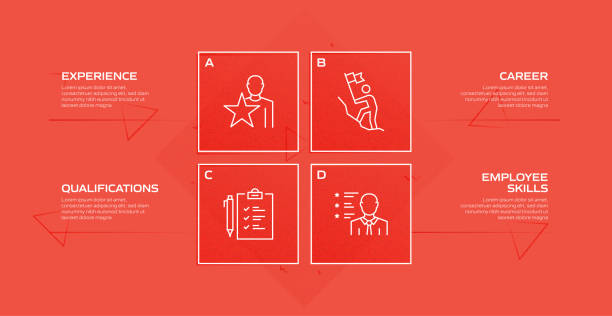Every manager wants their performance reviews to drive clarity, growth, and stronger relationships between them and their team members. Yet, for many professionals, these conversations often fall short. More often than not, reviews feel either rushed, vague or rigid, leaving employees confused about where they stand or how to improve if need be.
It doesn’t have to be this way though. A thoughtfully curated performance review process has the potential to become one of the most valuable tools in your performance management strategy. The key? Understanding what employees truly expect from the process, and delivering it with intention.
But what exactly are your employees looking for when they have their performance reviews? What can you say you bring to the table? Here are 6 things that matter to them, and what you might be missing if your reviews still feel like a verdict.
1. Clarity Over Confusion
Nobody wants to leave performance review more confused than when they walked in. Employees want clear expectations, roles, and success pointers. They also want to know they’ve performed, not just in terms of results but in how they’ve lived up to values and shown up in the team.
Unfortunately, only 14% of employees strongly agree that performance reviews help them to improve, according to Gallup. This is because reviews are usually either vague, or focused on past performance without direction to what is next.
What you need to do is be specific. For example, if an employee is lacking in communication skills, instead of telling them to improve on communication, highlight the exact issues and instances that shed light on where they are lacking, and explain how it affects the team. Then, guide them with actionable steps to improve. Feedback should be grounded with examples, connected to outcomes, and be easy to understand.
2. Feedback that Fuels, not Fights.
Constructive feedback is not the enemy. In fact, employees crave it as long as it’s fair, thoughtful, and delivered with care.
What they don’t want is feedback that feels like punishment or a one-sided download of everything that went wrong. They want you to talk with them, not at them. The best performance reviews should feel more like a coaching session rather than a verdict. They should highlight strengths, unpack blind spots and areas for improvement, and most importantly, offer a plan for what comes next.
Remember, feedback is only useful if it leads to action. Focus on areas the employee can control and provide a path forward. Don’t just say, “Be more proactive.” Instead, suggest concrete ways they can take initiative in their role.
3. A Dialogue that drives Engagement
Performance reviews should be a two-way conversation, and this means your employees must be heard. They need the space to share what’s been working for them, what hasn’t, and any ideas they might have. Treating reviews like a one-way evaluation, makes you miss valuable context and insights, as well as the trust of your employees.
So what should you do? Start your reviews with open-ended questions that allow employees to be honest. These aren’t just icebreakers, they’re conversation starters that make them feel seen and involved.
Employees are more likely to take action after feedback if you carry them along with the process. If you need help framing the right questions, check out our 100 Powerful Performance Review Questions to Boost Team Performance. It’s packed with questions designed to spark a real dialogue and uncover insights beyond surface-level performance.
Also, it’s important to have these conversations consistently, not just when it’s time for performance reviews. A Gallup study says that employees who receive regular feedback are 4 times more engaged in their work. Consistent conversations build trust and keep everyone aligned.
4. Recognition that Feels Meaningful
Performance reviews aren’t only about pointing out gaps. They’re also a chance to highlight what is working. A generic “great job.” won’t work for your employee. Instead, let them know what they did well, why it matters, and its impact on the team or the business in the long run.
This kind of recognition boosts both positive behavior and morale. It also helps employees understand their unique strengths, which can guide their development. When you highlight the ways someone shows up beyond the numbers, take for example, in areas like problem-solving, mentoring, and adaptability, it shows you’re paying attention to more than just output.
5. A Real Plan for Growth
Being told to improve with no push toward the direction of improvement can be very frustrating to an employee. Your performance reviews should include a crystal clear plan for your employees to level up. Additionally this plan should include the resources available to help them get there.
This means identifying skills they need to build on, planning training programs to build these skills, offering mentorship, and discussing possible roles they could grow into. Positioning development as a joint effort gives your employees a reason to stay and invest in their future with you.
Asides this, it’s important to tailor the plan according to the needs of each employee. A one-size-fits-all development doesn’t work as some employees may want leadership tracks, while others might be focused on deepening expertise. Your role is to listen, guide, and co-create a path that aligns personal growth with business needs. At Proten International, our L&D programs help you tailor growth paths that align with both individual and business goals. Book a consultation today to start building a high-performing team.
6. Less Surprise, More Consistency
Nothing should come up in a performance review that hasn’t already been discussed. If the feedback feels like a bombshell, something went wrong along the way. Employees want consistency. They want to know that their performance is being monitored fairly and that they won’t be blindsided during review season.
This means feedback should be continuous, not annual. It also means managers need to document wins and concerns throughout the year, so reviews are based on patterns, not just recent memory.
When you prioritize consistency, employees trust the process. They know what to expect, and they understand how their progress is being measured.
Final thoughts…
If your performance reviews are least anticipated by employees, it’s time to rethink your strategy. Performance reviews should inspire clarity instead of leaving employees more confused. They should open doors to insight and new ideas, not close them.
So ask yourself, are your reviews building trust or breaking it? Do they help employees grow or are they holding them back? And are they contributing to the culture you want to build?
If you’re looking to improve your performance review process, we’re here to help. From manager training to building review frameworks and aligning team goals, we’ll work with you to create a review strategy that’s practical, people-centered, and built for real impact.Book a consultation with us today and let’s turn performance reviews into a real driver of growth.











